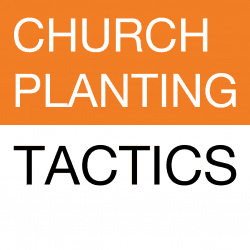by Patrick Bradley: As you plan your church plant website, you’ll have to decide which software to build it with. Consider these pros and cons of a WordPress church website.

I’ve helped dozens of church planters get started on their websites. The most popular site building software has been WordPress.
A WordPress Church Website Has Advantages
…including:
Low cost: WordPress itself is free; to publish a site you just need to rent some hosting space on a server, which can be had for $40-$60 a year.
Unlimited potential: because it’s open source software, developers continue to write plugins (mods); there are over 50,000 available, so WordPress has an unlimited feature set
Flexible design: you can…
pay a developer to create a custom design ($$$)
pay a designer to modify a theme/template ($$)
or you can buy readily-available DIY themes ($)
My developer friends agree that WordPress is the ultimate and go-to software for building websites.
And Some Disadvantages
But I’ve seen too many WordPress church websites go unmaintained. Google and other search engines penalize your site ranking if you’re not publishing fresh content. If it’s too difficult, it’s not going to happen.
Here are some real world cons to a WordPress church website:
You Have to Be Tech Savvy
Even a DIY theme requires some customization. The process has a steep learning curve and overwhelmingly planters have reported that’s it’s not intuitive. So if you’re not tech savvy and you don’t have anyone on your team who is, you’ll need to hire a designer to help you set up the look and functionality of your site (which is probably a good idea either way).
Because WordPress and many of the plugins are free, nobody is going to offer you tech support. There are plenty of WordPress help forums, but there are so many that it’s almost unhelpful. This site you’re viewing is built on WordPress and on occasion I’ve spent hours digging through volumes of forum posts looking for an answer. And though I don’t write code, I’m reasonably tech savvy.
You Have to Do the Maintenance
Sites built with WordPress can also be confusing or difficult to maintain in a volunteer organization like a church. You’ll have the same steep learning curve with:
Adding new pages and getting them to appear in your menus (it’s a multi-step process)
Changing page layouts
Troubleshooting plugins that conflict with each other (the thousands of plugins don’t promise to play nice with each other)
Security updates and patches
A proprietary service does all the troubleshooting and security automatically.
Publishing New Content Isn’t Necessarily Straightforward
Even if your WordPress church website is set up well and you have all the pages you need, it’s not always child’s play to add new blog posts, sermon files, pictures, etc., especially for a volunteer. So once again, you’ll have to burn precious time to figure this out, recruit a qualified volunteer, or hire it out.
No Practical SEO Advantage
One of the classic strong arguments for choosing WordPress has been that it helps your site rank higher with search engines (the art of SEO). But DIY sitebuilders have come a long way, and a little research produced plenty of contrary opinions and evidence. The 3 proprietary site builders I reviewed don’t offer rich snippets for SEO yet, but their SEO tools were comparable in all other ways (and I don’t know any church that’s using rich snippets). The best way to improve your page rank is to publish great content anyway.
My Advice
Go with WordPress if (you should have all of these):
You can afford a developer/designer to set it up right,
Someone on your team is tech savvy enough to learn to do the maintenance, and
You want the industry standard option with an unlimited feature set
Consider a proprietary site builder if (any one of these might be reason enough):
You’re in an early website stage,
You have limited funds and need a DIY option,
No one on your team is tech savvy, or
Ease of setup and ongoing use is important to you
Stay tuned for another post where I review those 3 DIY solutions I mentioned.
Let me point out that so many of the articles I read in preparing for this post were written by people with a vested interest in promoting their viewpoint. My bias: after 10 years of working with planters, I think church planters need something that’s easy to use in the early days. A thriving, self-sustaining church may need a robust feature set, but that’s a couple years in for most planters.
There’s no perfect solution, so keep asking questions, getting recommendations, and trying different tools. Find the right fit for you and your team and go with that.
The post Pros and Cons of a WordPress Church Website appeared first on Church Planting Tactics.
